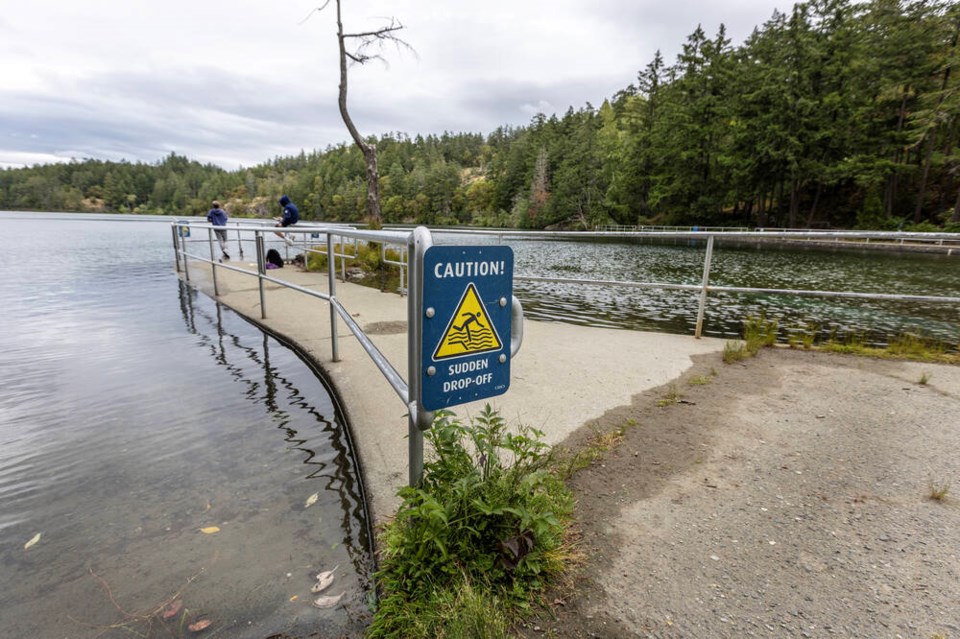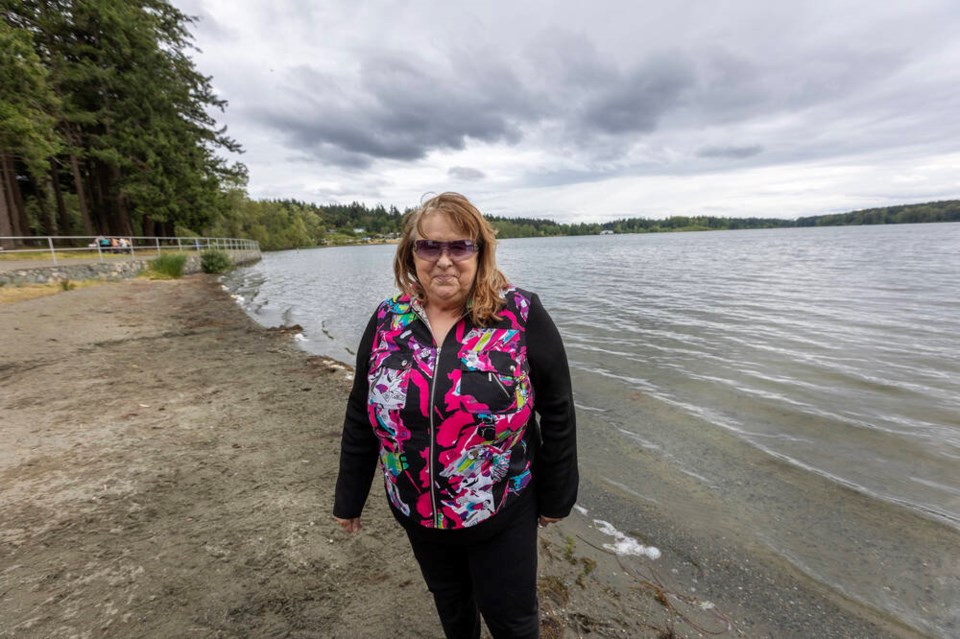The Capital Regional District’s parks committee is recommending a pilot program to put life-jackets and life-rings — but not lifeguards — at two local lakes.
CRD staff on Wednesday recommended a pilot program for personal flotation devices as well as life-rings at Thetis Lake and Elk/Beaver Lakes.
Despite a renewed call for lifeguards following the drowning of a teen at Langford Lake this month, the staff report did not recommend resuming the lifeguard program, which ended in 2002 at Thetis Lake and in 2003 at Elk/Beaver Lakes.
The decision to pull them included budget pressures, challenges in recruiting qualified lifeguards, and a trend among municipalities and other park agencies.
“I’m pleased to support this motion,” said Saanich Coun. Judy Brownoff. “I know it’s not lifeguards. But I believe this pilot project will be a first step.”
The committee unanimously recommended the pilot programs at Thetis Lake’s main beach and at Hamsterly Beach at Elk/Beaver Lake. It will now go to the CRD board, which next meets on July 10.
The staff report said pilot programs can be implemented immediately for the rest of the summer season within the current $35,000 budget for communication campaigns and outreach for regional parks and trails.
Staff had noted “there are no funds in the 2024 or 2025 budget” that would cover lifeguard service.
The Lifesaving Society of B.C. and Yukon estimated it could cost more than $270,000 per beach to implement a lifeguard service from May to September for a total of $1.3 million to implement the program across the five busiest freshwater swimming beaches.
There were 32 accidental drownings on Vancouver Island in 2023 — more than any other region in the province, according to the B.C. Coroners Service.
Dr. Murray Fyfe, a medical health officer with Island Health, said 2023 was the worst year on record for drownings on the Island, with more than twice as many as in 2021.
“We are very concerned about the upward trend for Vancouver Island,” he told the parks committee.
Drownings were up across B.C. last year, according to the Coroners Service, with the highest total in a decade at 101.
Most deaths were associated with boating, falling into water, or swimming, and most occurred in rivers and creeks (28 per cent), lakes and ponds (28 per cent), and the ocean (20 per cent). Baths accounted for 12 per cent, and hot tubs and swimming pools each accounted for four per cent.
And while alcohol- and drug-related data from 2023 is not yet available, between 2013 and 2022, alcohol and/or drugs were found to be a contributing factor in 39 per cent of accidental drownings.
In an interview, Kimiko Hirakida, director of programs and services for the Lifesaving Society of B.C. and Yukon, said she would like to see personal flotation devices and life-rings at all public beaches. She said the society is working with the CRD on the possibility of lifeguards.
Hirakida stressed the need for ongoing posting of visible signage about risks at public beaches, incorporating symbols clear to people who speak different languages.
“Even if you can swim in a pool, it’s not the same as swimming in open water,” she said. “So it’s really important to understand the dangers of open water and doing an evaluation of your site so that you make sure that you understand the depth of the water, the temperature of the water, and any changing conditions.”
View Royal Fire Chief Paul Hurst told the Times Colonist that every time there’s a drowning, there is a call for lifeguards at Thetis Lake.
“I don’t know if they are the answer, and I don’t know if they’re not,” he said.
Hurst said lifeguards can provide a false sense of security for some, remembering a time when lifeguards patrolled a roped off area at Thetis Lake and some parents would leave children unattended.

He said even with lifeguards, accidental drownings can occur outside of patrolled areas, such as people diving off cliffs at Thetis Lake.
Hurst supports the idea of available life-jackets and lifesaving equipment, education, and signage, but said people have to also take personal responsibility. Many of the people who have nearly drowned or drowned couldn’t swim or weren’t good swimmers, he said.
The McCreary Centre’s 2023 Adolescent Health Survey shows that nine per cent of B.C. youth can’t swim at all, and another 29 percent can’t swim confidently.
CRD park rangers and bylaw officers currently work with enforcement partners including police and fire departments to address dangerous behaviours such as alcohol/drug consumption and cliff jumping, the staff report said. That will continue.
This summer, the Lifesaving Society’s Water Wise Team, through funding from Island Health and with support from CRD staff, plans to visit key CRD regional parks to promote water safety.
Fyfe told the CRD committee there’s a lifeguard at a beach in Nanaimo and one in Cowichan. “These programs have worked well,” he said, noting fewer than one per cent of drownings happen at guarded beaches.
He said there’s no one water-safety approach. “It needs to be layers of prevention,” he said. “We have to have a multi-pronged approach.”




